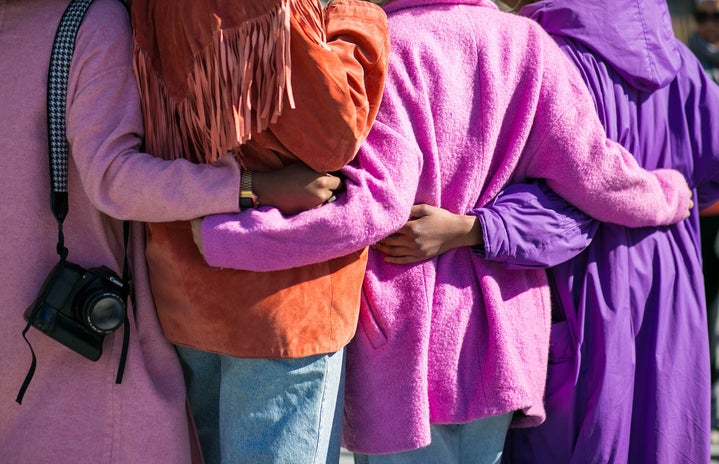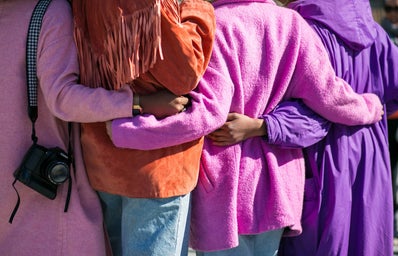Women’s rights have come a long way. Being born as a woman in current-day Singapore, I have definitely been presented with opportunities that I may not have been granted if I were to be born in another time or place. However, with that being said, as a cis-het women, I belong to the majority in Singapore and I do not face the issues that my LGBTQ+ friends do. Given that International Women’s Day is this month, I hope to bring to light the difficulties faced by women in the LGBTQ+ community in Singapore. As such I have interviewed a bisexual woman to give us her two cents on some of the problems she has faced and continues to face.
- Unfriendly Social and Housing Policies
Being in my 20s, my friends and relatives of a similar age group mostly plan to get married and start a family within the next couple of years. For heterosexual couples, the housing policies in Singapore benefit them as it gives them priority to buy their first Housing development Board (HDB) Flat, also known as a buy-to-order (BTO) flat; all they have to do is to present their marriage certificates within the 6 months after their purchase. Sadly, for those in the LGBTQ+ community who desire the aforementioned life, Singapore’s social and housing policies become one of the many unnecessary obstacles they will face.
Bias towards married or about-to-be married heterosexual couples is reflected in Singapore’s housing policies. Only couples that are made up of one female and male are able to get married and attain marriage certificates in Singapore. According to Prof Ng Kok Hoe from Lee Kuan Yew School of Public Policy, housing policies state that public housing caters for ‘family units,’ defined in a way that is most favourable to married couples. Given that LGBTQ+ couples are not even able to register their marriage in Singapore, they are not afforded the benefits that married heterosexual couples do.
As Paul Jerusalm from RiceMedia succinctly puts it, owning a Housing Development Board (HDB) Flat is more than a pipedream for queer Singaporeans. This sentiment is shared with our interviewee for this article. She is worried that she might not be able to get a house if she does “end up with a female partner, since BTO (the most affordable form of housing in Singapore) is reserved for heterosexual couples mostly”. For these couples they will most likely have to put their dreams of owning a house or starting a family on hold until they turn 35 years old — the legal age for purchasing public housing as a single person — unless they come from wealthier backgrounds and are able to afford private property.
- Discrimination in the workforce or/and school
It is no secret that those in the LGBTQ+ community are more likely than others to face discrimination in the workforce or/and school system. Speaking to the same interviewee, she shared that her fear of facing discrimination both in school and work has held her back from being more open about her sexuality. Upon more research, these sentiments are largely held by members of the community according to a survey conducted by Oogachaga, a non-profit organisation that works closely with LGBTQ+ community in Singapore. After interviewing around 400 LGBTQ+ individuals in Singapore, the survey found that an astounding 60.2% of those surveyed had faced sexual orientation and/or gender identity-based abuse and discrimintation. To make matters worse, transgender females have the highest incidence rate of 94.4%. Additionally, the finding noted that the majority of these individuals encountered them in school.
In fact, these individuals do not just face discrimination in social situations, whether consciously or unconsciously, in school but by the school system as well. The most notable case was when a female transgender student claimed that Millennia Institute banned her from attending classes unless she conformed to the dress codes for male students. Unfortunately, there are many others who are in the same shoes as her. Given that these individuals are not not able to blossom in safe environment, it is sad but unsurprising that there is a significantly higher reported rates of suicidal thoughts and attempts by LGBTQ+ individuals. While there petitions and pressure placed by organisations such as Pink Dot SG to ensure a better quality of living for these individuals in schools, such discrimination and lack of support might persist in the long run.
Additionally a report conducted by Sayoni which is a Singapore-based feminist, volunteer run organization, highlights that trans-women are more likely to face discrimination at their workplace as compared to their other counterparts in the LGBTQ+ community. This is especially the case when they apply for executive or professional positions and are unable to make advancements in their careers. Subsequently, this causes them to hide their gender identity and only creates more stress. Not only does this affect their mental health, as noted by the report, they are unable to form healthy relationships in the workforce and beyond.
- Misunderstanding of bisexual women (shockingly, from the LGBTQ+ community too)
For bisexuals, such rhetoric can make one feel misunderstood not just by society. Many (espeically straight guys) assume that because these girls “swing both ways”, it means that they are open to threesomes. This assumption stems from straight men’s fetishisation of queer women, and biwomen have been propositioned by males on dates if they would like to engage in threesomes. Making matters worse, numerous biwomen have reported that they have been on dates with other women, to only find out that these women are used as smokescreens by their boyfriends to seek biwomen to spice up their sex life or/and relationship.
However, bisexual women are not just discriminated against by society, they experience biphobia from the LGBTQ+ community too. According to research done by Stonewall, an LGBTQ+ charity organisation in London, 27% of bi women have faced discrimination from the community itself. Being marginalized by both society and the LGBTQ+ community, many bisexual women are stuck in this liminal space where they do not feel as if they belong anywhere.
This inability to express themselves both in the public and private sphere is a source of great anguish for many in the LGBTQ+ community. However, this is not to say that one should be beaten down by such circumstances. My interviewee notes that though she feels hypocritical giving such advice, she wants those in the same shoes as her to just be themselves. “No one has the right to criticise your choices and you’re free to live life to the fullest you possibly can. You owe yourself the best life you can possibly live,” she advises.
One way to put this advice into practice, is to find a supportive community. Local organisations like Oogachaga provide counselling services for those in the LGBTQ+ community. In fact, their services are run by trained volunteers and you are able to choose the platforms to have counselling such as WhatsApp or email. They also provide counseling services for family members of persons who identify as LGBTQ+. Lastly they also organize events for businesses as well as those working in the social service, healthcare and education sectors to help them understand the challenges their LGBTQ+ workers face, and to help promote safer environments for their employees.


